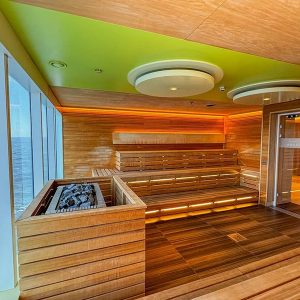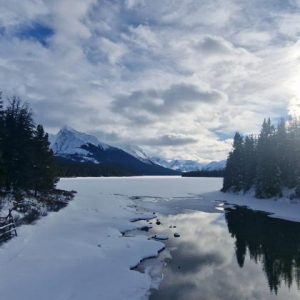One hot summer day several years ago I stopped our rented car by a war memorial in a drowsing village in southwest France. The name of the place is long forgotten, as is my reason for stopping, but the result is etched in my memory. At the foot of the memorial, below the tributes to local sons who had died in two World Wars, were the names of some Kazakhs. The Hotel de Ville was just across road and, out of curiosity, I went looking for an explanation. The Mayor was at his desk, his door open in the hope of a breath of air to relieve the oppressive heat. How did this come about, I asked him. He explained that the Kazakhs had been captured by the German army during Operation Barbarossa and sent to France, to fight the Resistance. But they had escaped, joined those they had been sent to kill, and had died there. For many years the village had wanted to honour them but to the Soviet regime they had been traitors. So it was not until perestroika that local representatives were able to seek out their relatives in Kazakhstan.
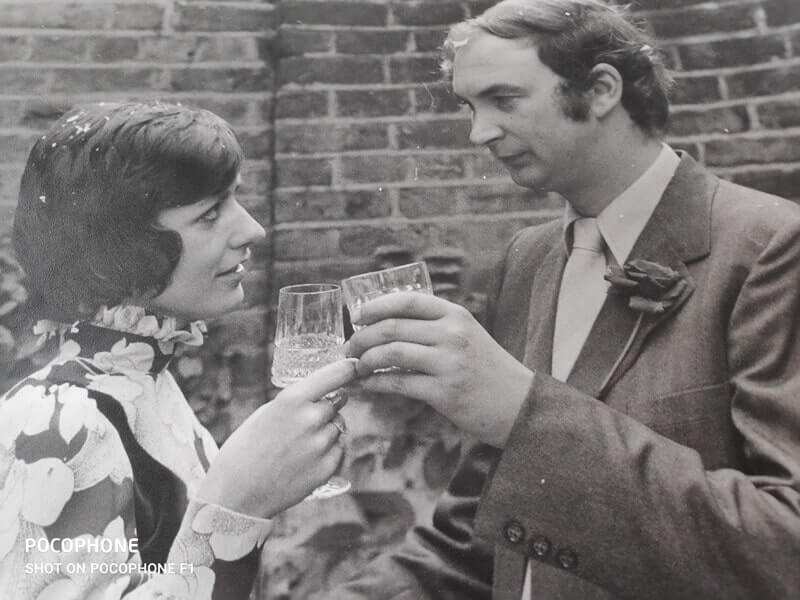 It is small discoveries such as this that has helped sustain a decades long love of pootling around in France by car. That love, now frustrated by the pandemic, took root nearly 50 years ago, on our honeymoon. Living in London, with easy access to taxis, I was late learning to drive. It was the lure of France that persuaded me to bite the bullet and pass the test, and not long before we were married I bought a second hand Riley Elf, a posh Mini with fins at the back and a walnut dashboard. The day after we were wed at Chelsea Register Office we headed for Newhaven, to catch a French ferry to Dieppe. The Channel was placid as a duck pond. During the crossing we celebrated the start of life together in the restaurant, with Dover sole and a bottle of chilled Chablis, and later drove to Chartres, with its magnificent cathedral.
It is small discoveries such as this that has helped sustain a decades long love of pootling around in France by car. That love, now frustrated by the pandemic, took root nearly 50 years ago, on our honeymoon. Living in London, with easy access to taxis, I was late learning to drive. It was the lure of France that persuaded me to bite the bullet and pass the test, and not long before we were married I bought a second hand Riley Elf, a posh Mini with fins at the back and a walnut dashboard. The day after we were wed at Chelsea Register Office we headed for Newhaven, to catch a French ferry to Dieppe. The Channel was placid as a duck pond. During the crossing we celebrated the start of life together in the restaurant, with Dover sole and a bottle of chilled Chablis, and later drove to Chartres, with its magnificent cathedral.
We had no plans other than to go where fancy took us, other than joining up with some friends at some point, in a rambling former Presbytery near Agen. Next day, by the Loire we ate a picnic, with a glass or two of cheap red wine. Being partial to the whites of Sancerre we decided, on a whim, to drive to the eponymous village. At the top of the hill above the vineyards we polished off a bottle in the late afternoon sun. Even in France, long before the days when decorous French couples began making do with a half bottle between them at dinner, and when drinking and driving seemed as natural as coffee and a Gitane, it seemed politic to abandon the car for the day. So we checked in to an unpretentious hotel, where the prix fixe dinner menu came with the magic words “vin compris” – as in unlimited. Looking back, it’s astonishing how much alcohol we put away in our youth.
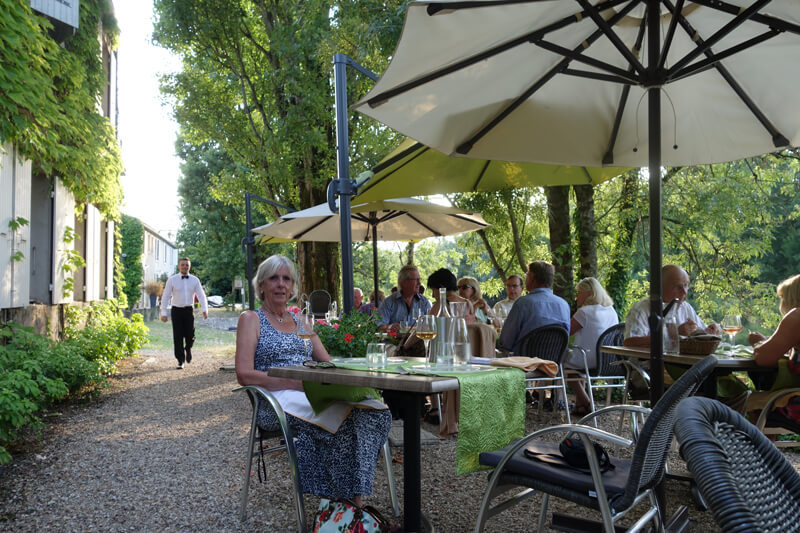 In a village near the Presbytery we ate an equally astonishing lunch of some seven courses with our friends. The mains began with a half chicken for each of us, in a wine reduction. Then, after a green salad, the other half arrived, plain grilled. The bill was a little over £1 a head. Vin was again compris but we pootled off regardless in their Renault 4 – a car basic enough to be fashionable with the Sloane set but with a Spartan comfort level – to Cahors, to buy some of its famous Vin Noir. In Agen market we bought a cepe the size of a Frenchman’s beret, and mackerel that we stuffed with the fennel those grew in profusion around their holiday home, and eventually we left them to their own devices and went on our way.
In a village near the Presbytery we ate an equally astonishing lunch of some seven courses with our friends. The mains began with a half chicken for each of us, in a wine reduction. Then, after a green salad, the other half arrived, plain grilled. The bill was a little over £1 a head. Vin was again compris but we pootled off regardless in their Renault 4 – a car basic enough to be fashionable with the Sloane set but with a Spartan comfort level – to Cahors, to buy some of its famous Vin Noir. In Agen market we bought a cepe the size of a Frenchman’s beret, and mackerel that we stuffed with the fennel those grew in profusion around their holiday home, and eventually we left them to their own devices and went on our way.
In Collioure, on the Cote Vermeille, near the border with Spain, we discovered Les Templiers, once patronised by the likes of Picasso, Matisse and Dali. Unprepared, we were open mouthed at the art works filling its walls, payment in lieu of cash – the story goes – for the restaurant’s legendary bouillabaisse. By the little bay, with its dazzling Mediterranean light and boat trips along the rocky coast, we drank robust south western reds and ate halved melons filled with Banyuls, a fortified wine not unlike port.
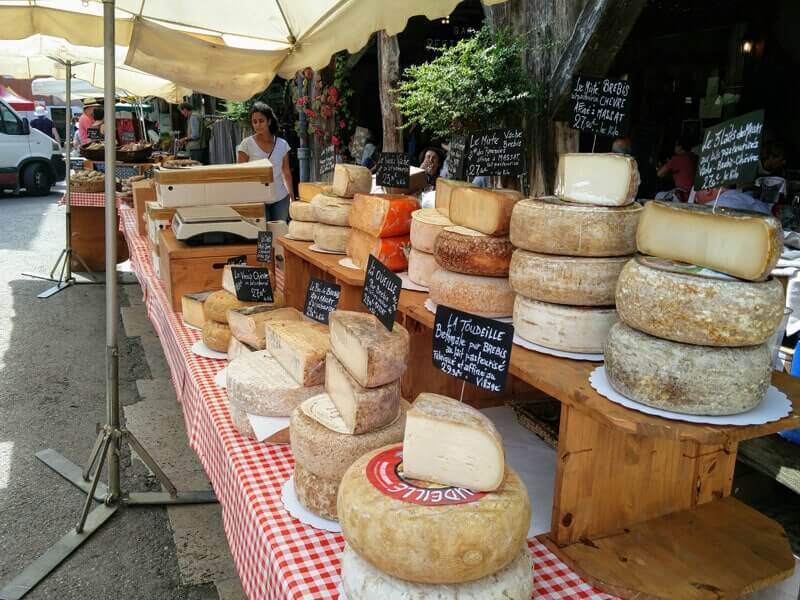 The trip introduced us to what we called “menu spotting”. In those days, in all but the best British restaurants, the steak you requested rare could arrive like shoe leather and there was no guarantee the salad would be dressed. Demand had yet to persuade supermarkets to stock a variety of French cheeses. In provincial France, where the price of eating out was still a fraction of the UK equivalent, there were still exotic dishes to be sampled. We would check as many restaurants as possible, plumping for one serving something we had never tasted: unusual pâtés, maybe, of wild boar or woodcock. On the way north again we spent a good hour or so scouring Annecy for somewhere serving the perch caught in the lake there. We found one, ordered some and as we left, passed a large box at the entrance. “Canadian Perch”, said the label, “Handle in a Hurry”.
The trip introduced us to what we called “menu spotting”. In those days, in all but the best British restaurants, the steak you requested rare could arrive like shoe leather and there was no guarantee the salad would be dressed. Demand had yet to persuade supermarkets to stock a variety of French cheeses. In provincial France, where the price of eating out was still a fraction of the UK equivalent, there were still exotic dishes to be sampled. We would check as many restaurants as possible, plumping for one serving something we had never tasted: unusual pâtés, maybe, of wild boar or woodcock. On the way north again we spent a good hour or so scouring Annecy for somewhere serving the perch caught in the lake there. We found one, ordered some and as we left, passed a large box at the entrance. “Canadian Perch”, said the label, “Handle in a Hurry”.
It was a portent of the globalisation which might have dulled the innocent joys of discovery. But somehow the backwaters of France have never lost their fascination. At home the flame was kept alive by the evocative recipes of Elizabeth David. There were still Gites de France to be discovered – and evenings dining en famille with the owners of a cottage in Limousin, who fed us home-made black pudding, pâté de pommes de terre and clafouti, and sent us home with a bottle of throat scorching Calvados, distilled in an itinerant alembic.
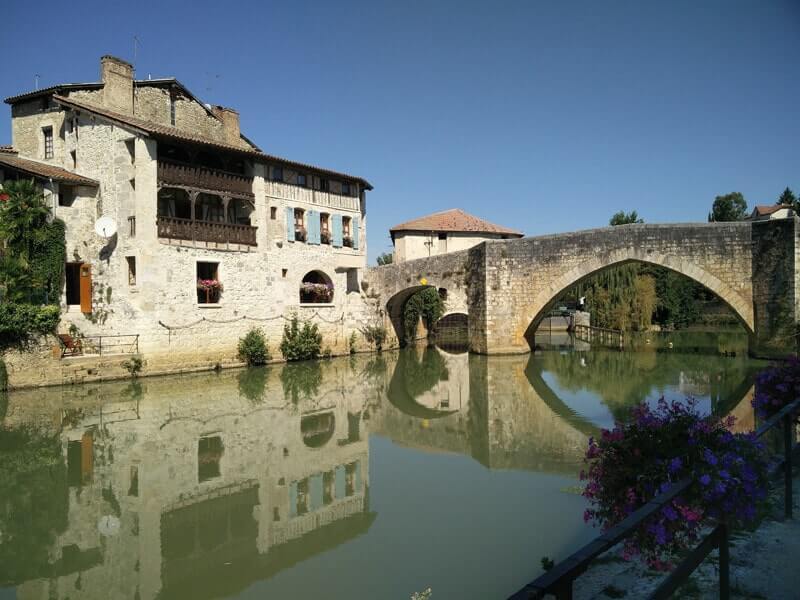 There was still the wonder of being able to pop into any local tourist office, ask them to recommend a walk and leave with a map (though the waymarks are usually so clear you don’t need one). And there were still obscure discoveries to be made, such as the association between the name of a small Vendee town and long remembered words from my favourite Shakespeare play, The Tempest. The town is St Philibert de Grand Lieu. The words are spoken by Caliban: “I’ll bring thee to clustering filberts”. But I’ll leave you with that as a little puzzle – and maybe an incentive, when COVID-19 allows, to take the car to France again.
There was still the wonder of being able to pop into any local tourist office, ask them to recommend a walk and leave with a map (though the waymarks are usually so clear you don’t need one). And there were still obscure discoveries to be made, such as the association between the name of a small Vendee town and long remembered words from my favourite Shakespeare play, The Tempest. The town is St Philibert de Grand Lieu. The words are spoken by Caliban: “I’ll bring thee to clustering filberts”. But I’ll leave you with that as a little puzzle – and maybe an incentive, when COVID-19 allows, to take the car to France again.

